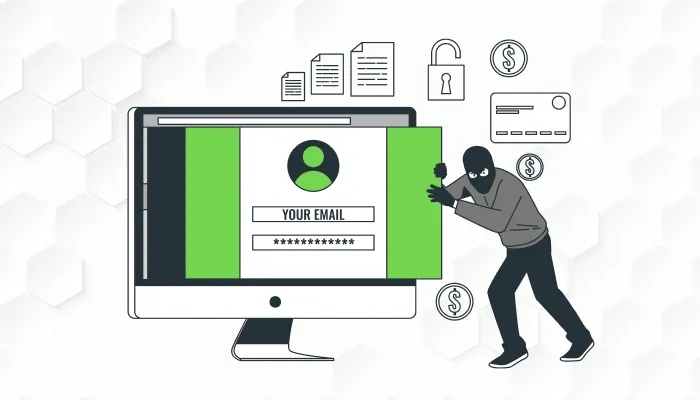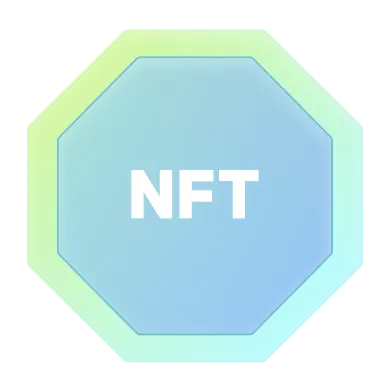The cryptocurrency world is becoming more popular, but unfortunately, so are the associated scams. It’s essential to know about the types of cryptocurrency scams and how to safeguard your crypto assets from being stolen. By being aware of the warning signs and taking preventative steps, you can significantly reduce the risk of falling victim to these scams. Remember to always be cautious and promptly report any suspicious activity. In this article, the CAIZ team will discuss typical cryptocurrency scams and how to avoid them.
Introduction to Cryptocurrency Scams: Recognizing the Red Flags
If you are new to the world of cryptocurrencies, it can be overwhelming to identify a scam. However, with the right knowledge, spotting a legitimate cryptocurrency is easy. One of the key indicators is that genuine cryptocurrencies have transparent and detailed information about the blockchain and associated tokens available for anyone to access.
Always Read The Documentation: White Papers
Cryptocurrencies usually follow a development process that commences with publishing a white paper for the general public to read. A well-crafted and trustworthy white paper includes comprehensive explanations of the blockchain and protocols, outlines the mathematical formulas, and provides a thorough understanding of how the entire network operates.
On the other hand, fake cryptocurrencies often lack properly researched and written white papers. These are usually poorly written, with inconsistent figures and without a clear explanation of how the funds raised will be utilized.
At CAIZ, we offer a lightpaper, a greenpaper, and a whitepaper. To read them, simply visit our website.
Check The Crypto Project Site For Team Member Information
When considering investing in cryptocurrency projects, choosing those that have transparently listed their members and developers is always a good idea. Sometimes, you might come across open-source crypto projects that haven’t named their developers.
However, this is typical for open-source projects, and you can find most coding, comments, and discussions on platforms like GitHub or GitLab. Some projects also use forums and applications like Discord for discussions. However, if you can’t find any of these elements, and the white paper is full of errors, it’s best to be cautious as it could be a scam.
Examine The Project’s Marketing Efforts
Cryptocurrencies are not shortcuts to getting rich quickly. Genuine blockchain-based projects don’t make unrealistic claims about their potential.
Instead, reliable crypto projects focus on sharing updates about their blockchain developments or new security measures taken. You should be cautious of updates that are more about making money than technical progress.
Legitimate blockchain-based businesses promote their services, while scammers rely on celebrity endorsements and readily available information on their websites. They may also ask everyone to purchase their crypto.
The Anatomy of a Crypto Scam: How They Work and Common Types
To ensure the safety of your cryptocurrency investments, it’s essential to be aware of common scams in the market. There are generally two types of scams that you should look out for:
The first type involves scammers attempting to access your digital wallet or authentication credentials. This can include tricks to get security codes or access to your computer or smartphone.
The second type involves transferring your cryptocurrency directly to a scammer, usually through impersonation, fraudulent investment business opportunities, or other malicious means.
Let’s look at some common cryptocurrency scams:
Phishing Scams
The cryptocurrency industry has been facing phishing scams that target information about some of the best crypto software wallets. These scams specifically aim to acquire a crypto wallet’s private keys, which are essentially a string of letters and numbers that act like a password and are required to access cryptocurrency.
To carry out these scams, the fraudsters usually send an email with links that lead holders to a specially created website and ask them to enter private keys. It’s important to be aware of such fraudulent activities and to take necessary precautions to prevent such events from happening. By staying alert and following best practices, we can help keep our cryptocurrency safe and secure.
Fake Celeb/Influencer Giveaway Scams
Scammers often pose as famous individuals, businesspeople, or cryptocurrency influencers to trick people into giving away their funds. They may offer to match or multiply the cryptocurrency sent in a “giveaway scam.” Stay vigilant while navigating the world of cryptocurrency.
Scammers are skilled at creating persuasive messages and may use social media accounts to establish credibility and induce urgency. They often present offers as a one-time chance for a big return, pressuring people to transfer money quickly without considering the risks involved. They may also pretend to be members of a cryptocurrency exchange’s support or security teams to trick crypto owners into giving up their funds.
To safeguard our hard-earned cryptocurrency, we must be aware of these tactics. Always verify the authenticity of any offers before making any payments, and never share personal information with unknown individuals who claim to be from exchange support or security teams.
Social Engineer Scams
To stay safe from social engineering scams, it’s important to be aware of the tactics used by perpetrators. They often use psychological manipulation and deceit to trick people into sharing their sensitive information.
Scammers may pose as trusted entities, such as government agencies, well-known businesses, tech support, community members, work colleagues, or friends to gain the trust of their potential victims.
Be cautious to avoid falling victim to scams. Never reveal private keys or send money to digital wallets, even if you know the person. Verify the legitimacy of the request through a different means of communication. Genuine entities never demand cryptocurrency.
Case Studies: Analyzing Past Scams for Future Safety
Cryptocurrency has brought about a significant shift in the financial world, providing innovative solutions and novel investment opportunities. However, due to its decentralized and relatively new nature, the crypto market has also been susceptible to scams and fraudulent schemes. To help you stay informed, here are five of the biggest crypto scams of all time.
Mt.Gox
In the past, Mt. Gox was a significant player in the world of Bitcoin, responsible for processing more than 70% of all Bitcoin transactions. However, in February 2014, the exchange encountered issues that led to suspending withdrawals.
Later investigations revealed that the platform had lost around 850,000 Bitcoins, equivalent to over $450 million at the time, due to hacking and poor management practices. Following these events, the company filed for bankruptcy, and its CEO, Mark Karpeles, faced legal proceedings in Japan.
PlusToken
PlusToken was a fraudulent investment scheme that mostly targeted Asian investors. The scam pretended to be a cryptocurrency wallet and investment platform, promising high profits to users who deposited their crypto assets.
The platform attracted millions of users and billions of dollars in cryptocurrencies. However, in mid-2019, the scheme’s operators suddenly stopped allowing users to withdraw their funds. This led to the arrest of several key individuals associated with PlusToken. It is estimated that the scam defrauded investors of more than $2 billion.
OneCoin
OneCoin was advertised as a groundbreaking cryptocurrency that utilised its own blockchain technology and was promoted through Multi-Level Marketing (MLM) tactics.
OneCoin was a centralised Ponzi scheme posing as a rival to Bitcoin. It had no actual blockchain but still attracted billions in investment from people worldwide. Its founder, Dr. Ruja Ignatova, disappeared in 2017, leading to the scam exposure.
Bitpetite
Bitpetite was a regrettable and unfortunate high-yield investment program that unfortunately misled many investors with its unrealistic promise of daily returns in exchange for their Bitcoin deposits. The platform operated for a few months, attracting users with its unsustainable and false promise of quick profits. As expected, Bitpetite abruptly shut down, and its operators vanished with the funds, leaving many investors devastated and heartbroken.
Bitconnect
Bitconnect was a cryptocurrency lending and exchange platform offering high investment returns through its proprietary token, Bitconnect Coin (BCC). Users were encouraged to invest in Bitcoin in exchange for BCC and were promised daily interest payments. The platform used a referral system to attract new investors. Bitconnect’s value skyrocketed to over $400 per coin at its peak.
However, it was later discovered to be a Ponzi scheme. As a result, in January 2018, the platform suddenly shut down and investors suffered significant losses as the value of BCC plunged. In total, billions of dollars were lost in the scam.
CAIZ’s Approach to Security and Trust in the Crypto Market
At CAIZ, we ensure transaction safety by taking a holistic approach to proactive and reactive measures.
Proactive Measures:
- Continuous Monitoring: Our systems continuously monitor transaction patterns, detecting and reporting any suspicious activities in real-time.
- User Education: We believe that educating our community about best practices, potential threats, and effective safeguarding is key to ensuring their security.
- Multi-layered Security Protocols: CAIZ utilizes multiple security measures, including multi-factor authentication and encrypted communications, to safeguard user data and assets.
Reactive Measures:
- Immediate Response: In case of a security concern, our system will either halt suspicious transactions or notify the concerned user.
- Regular Audits: CAIZ conducts regular security audits to keep our systems fortified against threats.
- Feedback Loop: We encourage our community to report any concerns or vulnerabilities. This feedback ensures we’re in tune with users.
CAIZ aims to offer a secure platform for users to conduct transactions with the assurance that their assets and data are protected. We are committed to ensuring transaction safety and continuously work to elevate our standards, making CAIZ a trusted name in the world of cryptocurrency.
CAIZ’s Sharia Compliance Features
CAIZcoin is a cryptocurrency that seamlessly integrates modern technology with Islamic financial principles. Its main feature is to ensure Sharia compliance, meaning that all transactions and activities strictly adhere to Islamic law. This makes CAIZcoin an attractive investment option for the billions of Muslims seeking halal (permissible) investment opportunities. Some of the key highlights of CAIZcoin’s Sharia compliance include:
- Prohibited Investment Exclusion: CAIZcoin refrains from investing in industries or activities that are prohibited in Islam, such as alcohol, gambling, and charging interest.
- Transparency and Trust: CAIZcoin maintains a transparent and traceable record of all transactions, promoting trust and credibility among users who uphold Islamic principles of honesty and openness.
- Community Focus: CAIZcoin donates a portion of its proceeds to charitable causes, aligning with Islamic values of social responsibility and contributing to the greater good.
Preventive Measures: How to Safeguard Your Investments in Cryptocurrencies
To protect yourself from scams, it’s essential to be aware of the following actions:
- If you encounter any suspicious signs, such as links, phone numbers, or requests for money, do not click on them or respond.
- Keep your private cryptocurrency keys safe and do not share them with anyone as they are crucial for your wallet access and crypto control.
- Avoid companies that make unrealistic promises of making lots of money or investment managers that guarantee quick returns.
- Be cautious of “celebrities” who contact you to buy cryptocurrency, as real celebrities would not reach out to you for this reason.
- If you are using online dating websites or apps, make sure to meet your romantic interests in person and do not give them any money.
- Do not respond to text messages or emails from companies claiming your account is frozen or that they can help you “unfreeze” it. These are most likely scams.
- If you receive any messages from government, law enforcement, or utility companies claiming that your accounts or assets are frozen, do not respond to them. Instead, contact the regulatory agency directly to get more information.
- Do not fall for job listings that offer cash-to-crypto converter or crypto miner openings, as these could be scams.
- If someone threatens to post explicit material unless you send cryptocurrency, do not give in to their demands. Report it immediately.
- Do not accept any “free” money or cryptocurrency offers. Of course, certain airdrops are legit; look for those that encourage community engagement or the completion of legit tasks.
Conclusion: Building a Safer Crypto Community Together
Together, we can create a cryptocurrency space that is safe and trustworthy. By being aware of common scams, staying informed, and taking necessary precautions, we can navigate this exciting yet challenging landscape with confidence. Remember to practice due diligence, responsible investment, and open communication. Let’s stay informed and safe by checking our Medium platform and the official CAIZ social media platforms.

















